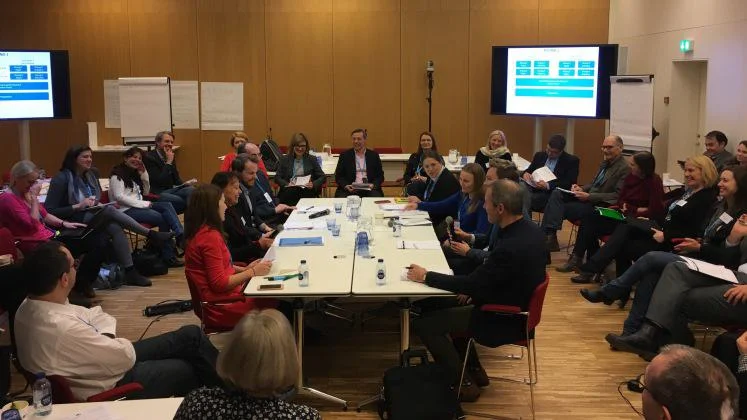LSE Health delivers training for the World Health Organisation

LSE Health has collaborated with the World Health Organisation Europe to deliver a training workshop on Negotiation for Medicines Strategic Procurement for senior decision-makers across the WHO European region and the European Commission.
The training was delivered on 20-22 February 2018 by the Medical Technology Research Group (MTRG), a research unit at LSE Health, in collaboration with the World Health Organisation Regional Office for Europe in Copenhagen. Led by Dr Panos Kanavos, Associate Professor in International Health Policy at LSE, and co-facilitated by Dr Aris Angelis and Mr Mackenzie Mills, researchers at LSE Health, the workshop follows the success of a first workshop run by LSE Health for the WHO in September 2017.
Jointly developed by LSE and WHO Europe, the workshop aimed to build practical skills in preparing and conducting negotiations, understand the obstacles faced by countries in conducting negotiations to provide access to new medicines, maintain a competitive supply environment and manage the entry of new products as well as generics and biosimilars.
In total, 72 high level civil servants from government departments responsible for medicines procurement across 28 countries[1] were trained in combined negotiation theory, practical exercises and realistic case studies in therapeutic areas of concern to participants.
Strategic procurement of innovative medicines is a growing area of interest across Europe, and as the demand for innovative medicines in Europe continues to rise given increased patient expectations, demographic changes and unmet need, concerns about affordability, particularly due to high cost of new therapies, remain high on the policy agenda of most health care systems. Proactive collaboration between countries in this area, may facilitate access to new medicines.
Dr Panos Kanavos, of the London School of Economics and Political Science, said: "As governments focus on improving healthcare accessibility, quality, and safety through health system efficiency, access to medicines also depends on good procurement practices. For these practices to be effective, the strength of national drug regulations and taxation policies as well as the security of pharmacovigilance systems and supply chains are imperative.
"Conducting negotiations with pharmaceutical companies to secure affordable prices of patented medicines through public procurement is an important skillset for member states. Importantly, to facilitate collective negotiation mechanisms, comprehensive pricing policies, transparent procurement processes, and greater generics / biosimilar competition, strong negotiation skills and a structured approach to inter-country collaboration are required. Currently there is limited experience within Europe on common procurement of medicines, which is why we have developed these workshops with the WHO."